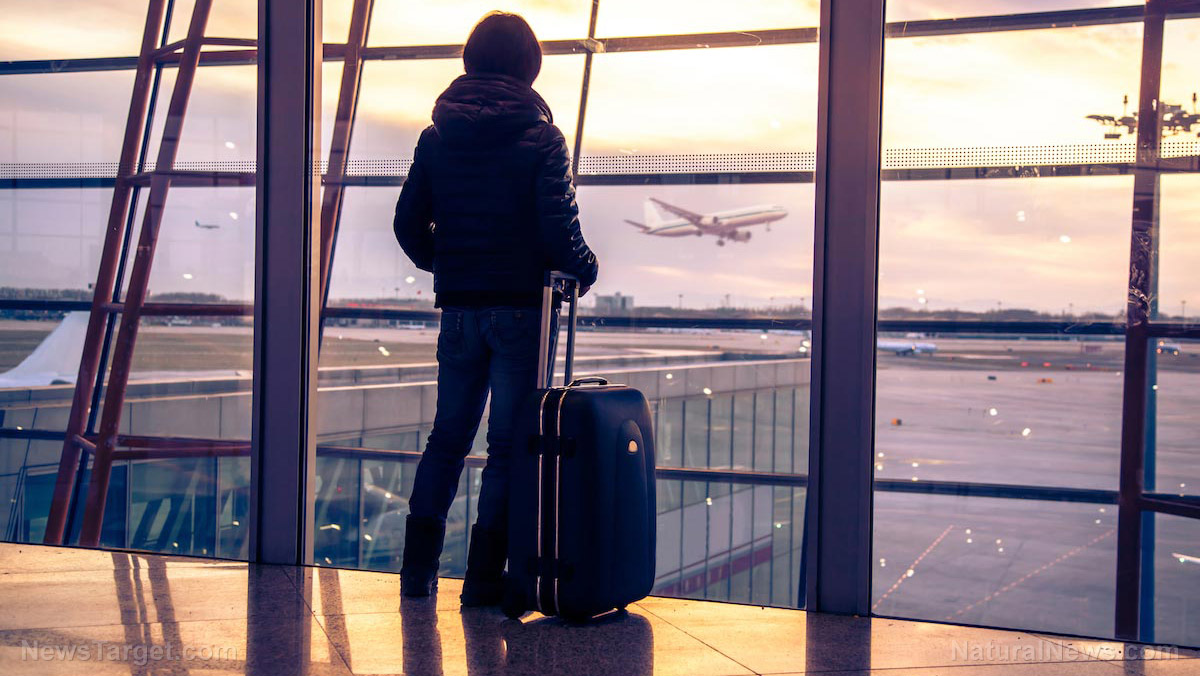FTC warns of scammers posing as airline customer service agents amid widespread flight cancellations caused by CrowdStrike glitch
08/07/2024 / By Laura Harris

The Federal Trade Commission (FTC) has recently had to release a warning about the increase in scammers lurking on social media and posing as airline customer service agents to target upset travelers dealing with flight cancellations and delays.
With tens of thousands of passengers stranded at airports on July 19 after Microsoft experienced a faulty software update from Texas-based cybersecurity firm CrowdStrike, scammers took the opportunity to target their vulnerability. (Related: Scammers can use Twitter to interfere in matters of national security.)
The glitch affected 8.5 million machines globally, including Delta Airlines’ IT systems that took several weeks to recover. This resulted in over 5,500 flights being canceled and the airline having to provide lodging, meals and alternative travel options for thousands of customers. Many of these reportedly missed work and suffered health problems from sleeping on airport floors.
“Most people can probably agree that there are few things more frustrating than airline delays or cancellations that leave you stranded at the airport,” the FTC said. “Whether the issues are the result of an unprecedented event like the CrowdStrike glitch that grounded thousands of flights worldwide or more common disturbances like weather delays, desperate travelers often turn to social media for help from the airlines.”
The FTC stated that these scammers usually use this opportunity to lurk behind fake accounts and steal travelers’ information, including booking confirmation numbers, phone numbers or bank accounts. Sometimes they even “send passengers to a spoofed site that harvests their personal information and uses it to steal the passenger’s identity or rack up charges on their accounts.”
National security strategist explains how cybercriminals have mastered the art of deceptive attacks
Jason Rabinowitz, a co-host of the “AvTalk Podcast” of the flight tracking service Flightradar24, has been tracking this scam for some time.
“This has been going on for a while now, and it doesn’t seem to have gotten better. The only real change since then is that a number of airlines have given up on Twitter [now called X] as an official channel altogether,” Rabinowitz said.
“Scammers were definitely trying to take advantage of this, replying to unsuspecting passengers while posing as the airline. One of the best tips to avoid being scammed is to always verify the authenticity of the account responding to you. Do a quick Google search to make sure it’s really the airline’s support account, and watch out for tricks like substituting a one for an L.”
Eric O’Neill, a national security strategist at the cybersecurity firm NexaSure, further explained that cybercriminals “have mastered the art of inserting themselves into a crisis,” including the CrowdStrike outages which caused thousands of flights to be delayed or canceled.
“They use deceptive and impersonation attacks that prey upon a target’s fears or desire to believe a thing to be true,” said O’Neill, a former undercover field operative for the Federal Bureau of Investigation who was tasked with surveilling foreign and domestic spies and terrorists. “During the CrowdStrike crisis, we saw countless scams where criminals would use imposter attacks that pretended to be airline support, CrowdStrike support and various pretend vendor support to assist a target in escaping the crisis.”
Moreover, O’Neill revealed that these scams often begin with an email or text alert claiming that the victim’s information has been compromised and identified in the dark web.
“When the victim calls for assistance, the criminal sitting in the dark web call center walks them through a process to install a helper application on their device,” he said. “This download grants control to the attacker, allowing them to dateline information, lock the device with ransomware or load other malicious software.”
Watch Glenn Beck discuss Jennifer DeStefano’s experience of being scammed by AI in the clip below.
This video is from the High Hopes channel on Brighteon.com.
More related stories:
Apple warns of cyberattack targeting 1.46 BILLION Apple devices.
Fraudsters are impersonating billionaires on Facebook, scamming Americans out of their life savings.
One of Mexico’s most dangerous cartels is using artificial intelligence to expand its operations.
Manhattan DA warns of MOBILE PAYMENT FRAUD: Two taps and someone’s life savings could be gone.
Sources include:
Submit a correction >>
Tagged Under:
air travel, big government, chaos, computing, conspiracy, crime, criminals, crowdstrike, cyber attack, cyber war, deception, faked, Federal Trade Commission, ftc, glitch, information technology, national security, scam, scammers, transportation
This article may contain statements that reflect the opinion of the author
RECENT NEWS & ARTICLES
COPYRIGHT © 2019 Dangerous.News
All content posted on this site is protected under Free Speech. Dangerous.News is not responsible for content written by contributing authors. The information on this site is provided for educational and entertainment purposes only. It is not intended as a substitute for professional advice of any kind. Dangerous.News assumes no responsibility for the use or misuse of this material. All trademarks, registered trademarks and service marks mentioned on this site are the property of their respective owners.



















